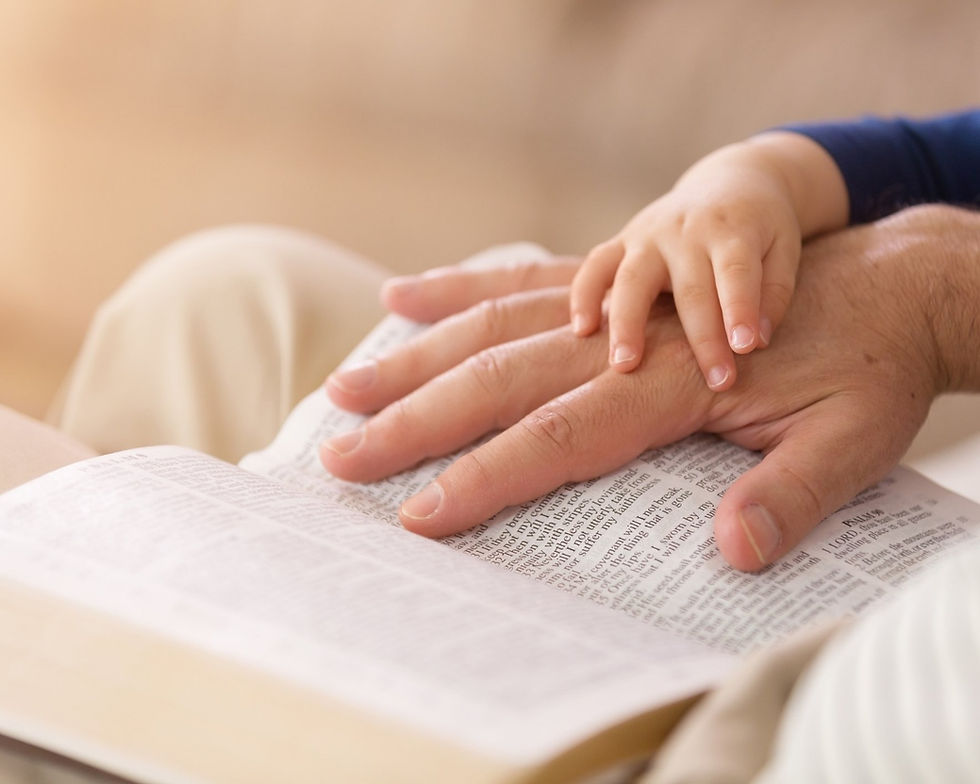Passing On a Legacy of Faith: Key Insights from Asia Pacific
- Jun 11, 2025
- 3 min read
Updated: Jun 17, 2025

It's a deeply human desire to pass on what matters most in life. For many across the Asia Pacific (AP) region, this includes passing the legacy of faith and a love for God’s Word to the next generation. A recent collaborative study by Center for Bible Engagement and Our Daily Bread Ministries explored how parents and caregivers are navigating this important task.
The study, conducted in 2024, gathered insights from more than 3,200 Christian respondents across 8 countries. Participants included primarily parents (49%), Sunday School teachers (19%), extended family (9%), and grandparents (6%). The good news is that most have a heart to share their faith. A remarkable 91% of adults surveyed in the Asia Pacific region believe it is important or extremely important to share their faith with the children in their lives, which highlights a strong desire to nurture faith in the next generation.
However, the survey also uncovered a significant challenge: the majority of respondents don’t feel confident enough to help children with their faith journey. This is particularly prevalent among parents, with only 35% feeling equipped to effectively guide children spiritually.
So, how are they currently engaging children with faith? While basic spiritual disciplines like prayer are most common across groups, there seems to be less emphasis (or less confidence) in facilitating deeper faith discussions. Only three out of five parents read the Bible with children, a practice linked to a higher likelihood of personalized faith and spiritual growth (CBE, 2025). A little less than half of grandparents (49%) read the Bible with their grandchildren. Sunday School teachers (73%) are more likely to read the Bible with children and tend to encourage participation in all surveyed spiritual activities like prayer, Bible reading, worship, and serving in the church or community.
Adults also perceive their roles in equipping children differently depending on their relationship. Parents most often see their role as helping children build a strong personal faith foundation (38%). Grandparents frequently view their contribution as providing biblical wisdom (30%). Sunday School teachers have a broader perspective, including modeling Christ-like character and helping children develop a strong personal faith foundation.
Perhaps one of the most insightful findings touches on communication. Engaging in open dialogue about faith with children was the lowest perceived role across all groups (ranging from 13% to 18%). This doesn't necessarily mean they don't talk about faith, but it suggests a potential hesitation, a lack of understanding, or a lack of confidence in knowing how to facilitate deeper conversations that connect biblical truths to daily life.
This gap between the strong desire to share their faith with the next generation and the confidence to do so highlights a need for guidance and support. In fact:
Seven out of ten parents and Sunday School teachers stated they need more Christian parenting books or materials.
Younger parents and Sunday School teachers specifically indicated a need for Christian educational programs or curricula (>60%).
Grandparents expressed a need for support groups or Christian counseling to help them guide their grandchildren.
The call for more support isn't just a request; it's a plea for help in the important work of nurturing the faith of the next generation. In essence, the research reveals dedicated individuals across the Asia Pacific region—including parents, grandparents, and teachers—who value sharing faith and faithfully invest in children's spiritual lives. By providing relevant resources and encouragement, we can help empower these individuals to guide children in their walk with God and leave a lasting legacy of faith.
See related CBE research:



